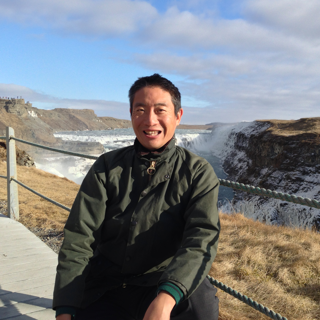How did you get to where you are now?
I was awarded a Teaching Scholarship by the Public Service Commission in Singapore after my A Levels. Having successfully passed the entrance examinations, I went to the University of Cambridge to complete an undergraduate degree in geography in 1986. Upon graduation, I returned to Singapore where I completed my National Service as a geography teacher in a military school. I was awarded a formal teaching certification from the National Institute of Education, and I spent the next few years teaching geography. I was fortunate to also be able to serve in the Curriculum Planning and Development Division of the Ministry of Education, during which I helped develop lesson packages for teachers as part of Singapore’s ‘Thinking Schools, Learning Nation’ initiative at the time.
In 1999 I received a Masters in Education Technology from the Graduate School of Education at Harvard, and my doctoral research was on adolescent spatial cognition, which I conducted through a series of wayfinding activities with schools in Singapore between 2003 and 2006. Since then, I have been working at the National Institute of Education, initially in geography education for both pre- and in-service teachers, and more recently in the broader field of the learning sciences.
What do you do as part of your role?
Since 2009 I have been working alongside colleagues from the Ministry of Education in the design of learning environments. What drove the work of my team was initially the wish to help teachers understand the possibilities of game-based worlds for learning. More recently, we have come full circle back to geography because we have realized that the use of portable, low-cost, open-source environmental sensors represent an excellent way of helping learners interrogate their local environments in authentic ways.
I work closely with my team of Research Assistants to visit schools each week, to work alongside them - such as through the facilitation of professional development workshops - to help them build their skill sets in areas such as coding with micro:bit and Arduino, computational thinking, GIS, and the internet of things.
What skills and characteristics do you need for this role, apart from geographical knowledge?
Performing this role requires a great deal of empathy, because teachers work under particular constraints. Therefore, it is important to be as aware as possible of local contexts - which sometimes might not be explicit - which inform the decision-making process of teachers. Being able to manage projects in terms of keeping to budget and keeping to schedules, as well as in terms of resource deployment, is also very important. These qualities all help to build trust among the many diverse stakeholders in education.
How does geography feature in your work/what difference does it make?
Geography is absolutely critical to my work. Even though there are projects in my team’s portfolio which are not explicitly geographical (e.g. we currently manage two projects related to mathematics education and we are also collaborating with the Republic of Singapore Air Force) an understanding of operations at different scales allows us to have both a holistic overview as well as being able to attend to the smaller details. For projects which are more explicitly geographical in nature, such as our recent collaboration with schools in West Java, Indonesia, on the use of low-cost environmental sensors, understandings of core-periphery relationships have really helped us design for local adoption and scaling.
What do you enjoy most about your job? What’s the most rewarding project you have worked on?
I am very grateful that my job gives me opportunities to put into practice the skills I have from both my professional and academic backgrounds. I look forward to each new day because I know that the work my team and I does will help make learning more authentic and meaningful for the next generation. As an example, one of the projects I worked on was a series of workshops my team and I facilitated in collaboration with a school in Amritsar, in the Punjab. It was a tremendous privilege to be able to immerse ourselves in a culture so different from Singapore, and to actually make a difference in the design of both the physical learning environment and the enacted curriculum. That shall always be a highlight.
Do you get to travel for your role?
Our work has taken us to Java, the Punjab, and also to Hong Kong, Taiwan, and the Australian state of Victoria. During these visits, we work together with teachers to understand their needs and contexts and design and facilitate workshops around topics such as curriculum design for STEM and geography, or coding education, computational thinking, and designing for the nurturing of a culture of making.
What advice would you give to someone wanting to go into this career?
If you are considering a career in geography education, or a career in teaching, you really must love learners of all ages and backgrounds, and have a genuine concern for stewardship of our environment, at a diversity of scales (from the local to the global). Keep bringing this to mind, when the going gets tough (and it will), what awaits is an extremely rewarding career in which you will not begrudge the time and hours you invest.
Why did you choose geography? Why should others choose geography?
To be candid, I did not so much choose geography, than geography chose me. If it were not for the Teaching Scholarship I received back when I was still in my teens, I would likely be in a very different career today. During my A Levels, geography was not the subject I was doing particularly well in (that would have been economics and mathematics), nor was it the subject I enjoyed the most (step up English literature). However looking back, I honestly would not have wanted it any other way. Geography has given me the ability to appreciate both the physical and the social sciences, the ability to understand systems and scales, and an ever-growing curiosity and optimism about the world around us. I hope that you too, will come to love the way geography gives you unique strengths and insights that no other disciplinary domain does.
* This interview was undertaken in 2019 and was correct at the time of publication. Please note that the featured individual may no longer be in role, but the profile has been kept for career pathway and informational purposes.


